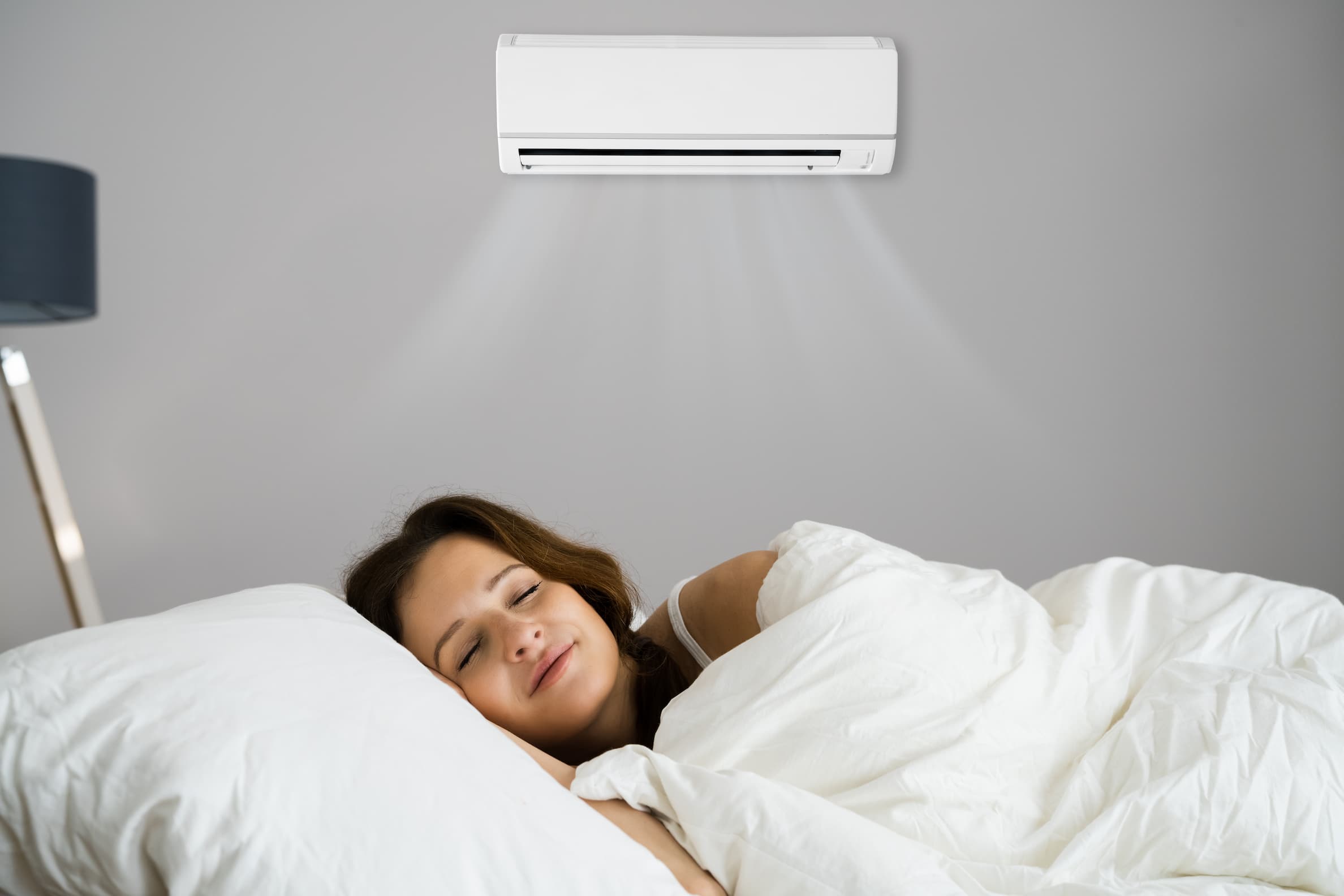
The Perfect Sleep Temperature
Getting a good night’s sleep is crucial to your overall health and well-being, and one of the most important factors that can affect your sleep quality is the temperature of your bedroom. The ideal temperature for sleeping varies from person to person but generally falls within a certain range. In this article, we will explore the optimal sleep temperature and provide tips for achieving a good night’s rest.
How Does Temperature Affect Sleep?
Getting a good night’s sleep is crucial for your overall health and well-being, and one of the most important factors that can affect your sleep quality is the temperature of your sleeping environment. In this article, we will explore how temperature affects sleep and provide tips for achieving optimal sleeping conditions.
The temperature of your sleeping environment can affect your sleep quality in several ways. First, when your body temperature drops, it can signal to your brain that it’s time to sleep. This is why sleeping in a cool room can help you fall asleep faster and stay asleep longer. On the other hand, when your body temperature is too high, it can make it difficult to fall asleep and stay asleep.
In addition to affecting the time it takes to fall asleep, temperature can also impact the quality of your sleep. When your body temperature is too hot or too cold, it can cause you to wake up frequently throughout the night, which can lead to daytime fatigue and other negative health effects. By creating a sleeping environment that is conducive to maintaining a comfortable body temperature, you can improve the quality of your sleep and wake up feeling refreshed and ready to tackle the day.
What Is the Best Temperature for Sleep?
Getting enough high-quality sleep is essential for maintaining good health and well-being, and one of the most important factors that can affect the quality of your sleep is the temperature of your sleeping environment. In this article, we will explore the best temperature for sleep and provide tips for achieving the ideal sleeping conditions.
The best temperature for sleep varies depending on your individual needs and preferences, but in general, most people sleep best in a cool environment. The ideal temperature for sleep is typically between 60 and 67 degrees Fahrenheit (15.5 and 19.5 degrees Celsius), although some people may prefer slightly cooler or warmer temperatures. By creating a sleeping environment that is conducive to maintaining a comfortable body temperature, you can improve the quality of your sleep and wake up feeling refreshed and ready to take on the day.

Tips for Achieving a Good Night’s Rest
Getting a good night’s rest is essential for maintaining good health and well-being. A good night’s sleep can help improve memory and focus, boost mood, and reduce the risk of chronic health conditions such as obesity, diabetes, and cardiovascular disease. However, achieving a good night’s rest can be challenging, especially in today’s fast-paced world where we’re constantly bombarded by stimuli that can interfere with our sleep. In this article, we will provide tips for achieving a good night’s rest and improving the quality of your sleep.
There are several factors that can affect your sleep quality, including the temperature of your sleeping environment, noise levels, light exposure, and stress levels. By making small changes to your sleeping environment and daily habits, you can improve the quality of your sleep and wake up feeling refreshed and energized. Whether you’re someone who struggles with falling asleep or staying asleep, or you simply want to improve the overall quality of your sleep, these tips will help you achieve a good night’s rest.
Keep your bedroom cool: To achieve the optimal sleep temperature, it’s important to keep your bedroom cool. You can do this by using an air conditioner or a fan to circulate the air. If you don’t have an air conditioner, you can also keep your windows open to allow for fresh air to circulate.
Use breathable bedding: Using breathable bedding is also important for achieving a good night’s rest. Materials such as cotton and linen are breathable and can help regulate your body temperature while you sleep. Avoid using synthetic materials that can trap heat and make you feel uncomfortable.
Invest in a good mattress: Your mattress plays a crucial role in your sleep quality. If your mattress is too soft or too firm, it can affect your body’s ability to regulate its temperature. A good mattress should provide support and comfort while also allowing for airflow.
Dress appropriately: Wearing the right clothing to bed can also help you achieve the ideal temperature for sleeping. Choose lightweight and breathable fabrics such as cotton or silk. Avoid wearing thick pajamas or clothing that can trap heat and make you feel uncomfortable.
Consider a weighted blanket: Weighted blankets have become increasingly popular in recent years due to their ability to promote relaxation and reduce anxiety. In addition, they can also help regulate your body temperature by providing a cozy and comfortable environment for sleeping.
The Best Sleep Temperature for Infants
As a parent, you want to ensure that your baby is getting the best sleep possible. One factor that can greatly impact your infant’s sleep quality is the temperature of their sleeping environment. In this article, we will explore the best sleep temperature for infants and provide tips for achieving optimal conditions for your little one’s rest.
The ideal temperature for a baby’s sleeping environment is between 68 and 72 degrees Fahrenheit (20 and 22.2 degrees Celsius). This temperature range is considered optimal because it is not too warm or too cold and can help your baby sleep soundly. However, it’s important to keep in mind that every baby is different, and you may need to adjust the temperature based on your baby’s individual needs.
The Study of Sleep Temperature
A study conducted by the National Sleep Foundation in 2022, involving a diverse group of participants, explored the relationship between sleep quality and bedroom temperature. The research found that maintaining a bedroom temperature within the range of 60 to 67 degrees Fahrenheit (15.5 to 19.5 degrees Celsius) significantly improved sleep quality. Participants reported falling asleep faster, experiencing fewer nighttime awakenings, and waking up feeling more refreshed when their sleeping environment adhered to this temperature range. This study underlines the importance of controlling bedroom temperature to achieve better sleep quality and supports the recommended temperature range for optimal sleep.
Healthy Turkiye Notes
Achieving the ideal temperature for sleeping is crucial for getting a good night’s rest. Keeping your bedroom cool, using breathable bedding, investing in a good mattress, dressing appropriately, and considering a weighted blanket are all effective ways to help regulate your body temperature and improve your sleep quality. By following these tips, you can wake up feeling refreshed and ready to tackle the day ahead.




